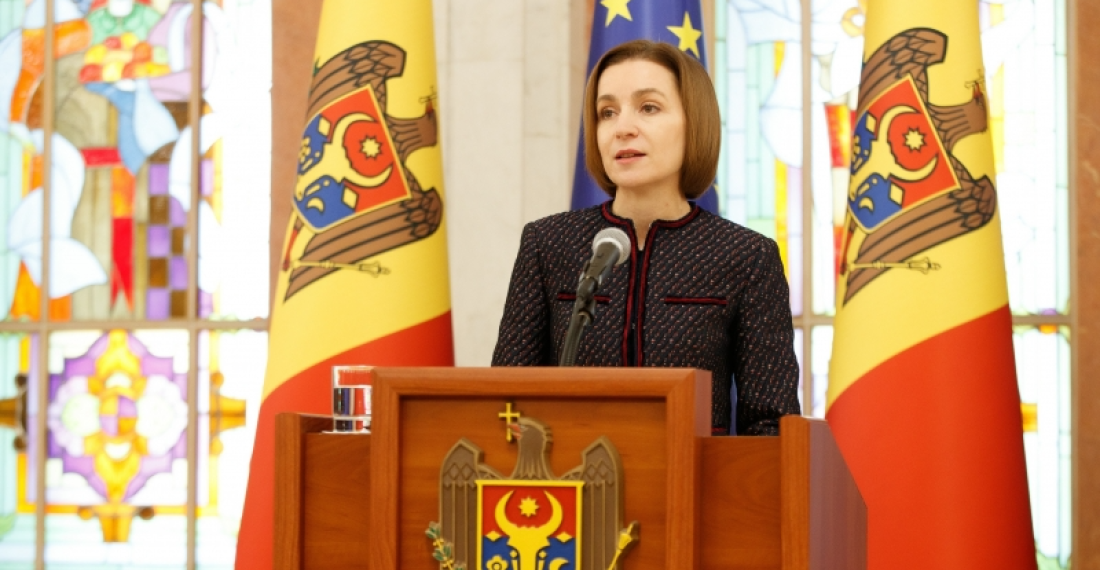In a speech on Monday (13 February), the Moldovan President Maia Sandu has warned of a Russian plot to destabilise the country in a coup d'état.
"It will be organised under the guise of opposition protests and with the involvement of people with military training disguised as civilians. The plan also involves citizens of Russia, Belarus, Serbia and Montenegro entering the country. They will attack government buildings, take hostages and try to change the government in the republic," said President Sandu.
"The purpose of these actions is to overturn the constitutional order, to change the legitimate power from Chisinau to an illegitimate one that would put our country at Russia’s disposal to stop the European integration process but also so that Moldova can be used by Russia in its war against Ukraine. To prevent this scenario, I ask all state institutions to show maximum vigilance," she said.
Sandu finished by saying, "The Kremlin's attempts to bring violence to our country will fail. Let's have confidence in the Republic of Moldova."
Ukrainian intelligence tips off Chisinau after missile overflight and political turmoil
Today, the unrecognised separatist region of Transnistria in Moldova still hosts some 1,500 Russian soldiers, and last year there were concerns that Russia could mount an assault on Ukraine from the region.
Speaking to the European Council on 9 February, Ukrainian President Volodymyr Zelensky said that Ukrainian intelligence had "managed to intercept a detailed Russian plan to destroy the political situation in Moldova", adding that the message had been passed on to authorities in Chisinau.
The news comes after Russia launched the latest wave of missile strikes on Ukraine on Friday (10 February), during which Russian missiles flew through Moldovan airspace in what the country's defence ministry described as a "violation".
Only hours later, the Moldovan Prime Minister Natalia Gavrilita then resigned and the government collapsed after 18 months of political and economic turbulence.







